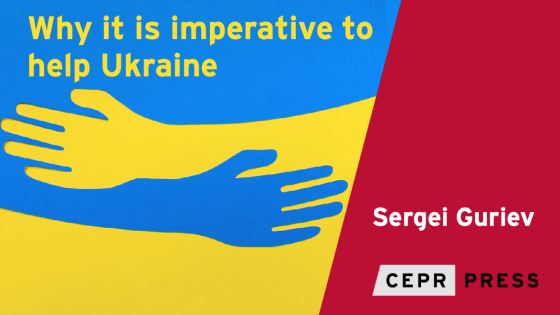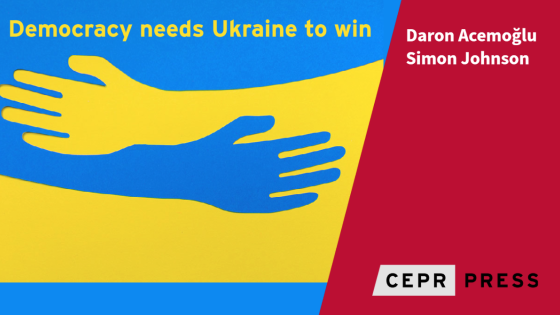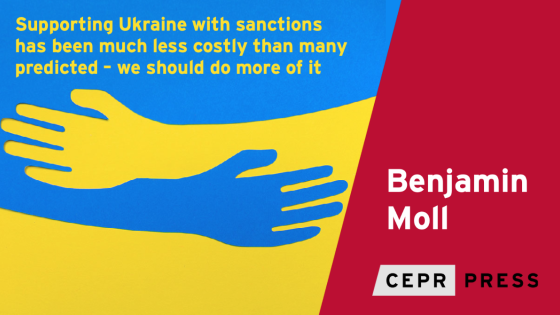In a recent book (Guriev and Treisman 2022), Daniel Treisman and I show that most of today’s non-democratic regimes are what we call ‘spin dictatorships’ – similar to what Putin practiced for his first 20 years in office, before 2022. Unlike the traditional 20th century model of dictatorship based on open repression, modern autocrats prefer to pretend to be democratic leaders and undermine political checks and balances in a covert way. Instead of fear, they rely on manipulation of information; instead of terrorizing their citizens, they try to deceive them.
Putin has been one of the most sophisticated spin dictators. He has used co-optation of elites, sophisticated propaganda, hidden censorship of traditional and online media – while maintaining a democratic façade. Even when he launched his wars of aggression, he managed to create complex veil of deniability so that some Western leaders and businesses continued to do business with him.
However, as with other spin dictators, Putin eventually faced a major problem: in order to remain popular, he had to deliver income growth – and in a modern middle-income country, growth comes from educated and creative citizens. But this class is sufficiently sophisticated to see through spin dictators’ informational tricks. Hence the conundrum. On the one hand, the spin dictators need more of such ‘knowledge workers’ to increase economic performance, hence convincing the average citizen that they are competent leaders worthy of support. On the other hand, the greater the number of knowledge workers there are in the country, the harder it is to silence them. Inability to resolve this problem often results in democratic transitions. However, there have also been cases when, in order to cling to power, dictators went back in time – replacing the modern spin-based dictatorship model with the 20th century approach based on open repression. For example, Venezuela under Hugo Chávez was a classical spin dictatorship, while his successor Nicolás Maduro became a true fear dictator – at a huge cost to Venezuelan society and economy. Under Maduro, Venezuela’s GDP declined by 75% and five million people (15% of the population) have left the country (Hausmann and Morales-Arilla 2021).
The Venezuelan example should have served as a warning to other regimes. Indeed, spin dictatorships have become the dominant model in the post-Cold War world exactly because they are better suited to the modern world of a globalised economy, cross-border capital and talent flows, global media and human rights NGOs. Pretending to be an imperfect democrat – rather than an open despot – allows regimes to attract foreign direct investment and benefit from trade flows. The old-style dictatorships cannot perform as well; this is why they have been almost extinct today.
So why do some spin dictators choose – as Putin did in 2022 – to go back to open violence? They know that violence begets violence, that the old-style tyranny is not only bad for the country but dangerous for the tyrants themselves (Guriev and Treisman 2022). Still, as they are cornered by growing resistance from better0educated and better-informed classes, they take this risk – because they overestimate the odds that they can get away with that.
Dictatorships are prone to making mistakes (Treisman 2020). As they silence opposition, introduce censorship and suppress dissent voices, they lack critical feedback and tend to overplay their hands. Some dictators understand this and allow partial media freedom, but others, especially in resource-rich countries, still prefer to limit liberties (Egorov et al. 2009) – even partial media freedom creates political risks, while resource rents can help pay at least the economic costs of wrong decisions. Not surprisingly, in 2022, Putin overestimated the strength of his own army and underestimated the courage of Ukrainian resistance and the unity and resolve of the West. He probably thought his 2022 aggression would be a replay of his 2014 invasion in Ukraine – a typical spin dictator war. He hoped to take Kyiv in a few days, change the government at gunpoint – like he did in Crimea in 2014 – and to present this as a fait accompli to the world before the West could agree on significant sanctions and military support. Then he would continue to function as a spin dictatorship, a more efficient and less isolated regime.
Putin’s 2022 invasion in Ukraine was his greatest mistake. But does he understand that he has already lost? It may seem obvious: Russia’s share in global GDP is about 1.5%; the pro-Ukraine coalition produces about half of global GDP. However, Putin is not giving up because he is counting on fatigue of Western public opinion. He believes that, eventually, Western societies will be distracted by other problems, which will result in declining military and financial support for Ukraine so that Putin will be able to keep at least some of the occupied Ukrainian territory and, as in 2014, this war will be presented to his base in Russia as a victory. Yes, this will be very costly for the Russian economy and society. But in terms of one thing Putin cares for – his hold on power – his 2022 bet might still pay off.
Putin must be proven wrong. If he wins, many other spin dictators around the world will make similar bets on moving back to violence. With all their dishonesty and opportunism, spin dictators torture and kill substantially fewer people than the old-style despots. Helping Ukraine win this war will convince other dictators how costly open violence is. This will save many lives in the future.
References
Egorov, G, S Guriev, and K Sonin (2009), “Why Resource-Poor Dictators Allow Freer Media: A Theory and Evidence from Panel Data”, American Political Science Review 103(4): 645-668.
Frye, T (2021), Weak Strongman: The Limits of Power in Putin's Russia, Princeton University Press.
Guriev, S and D Treisman (2022), Spin Dictators: The Changing Face of Tyranny in the 21st Century, Princeton University Press.
Hausmann, R, and J R Morales-Arilla (2021), “What Should Biden Do About Venezuela?”, Project Syndicate, 4 March.
Treisman, D (2020), “Democracy by Mistake: How the Errors of Autocrats Trigger Transitions to Freer Government”, American Political Science Review 114(3): 792-810.



